All Stories
-
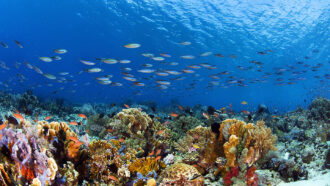 Earth
EarthAnalyze This: Nutrients from sewage may harm coastal ecosystems
A new model suggests that 58 percent of coral reefs and 88 percent of seagrass beds are exposed to excess nitrogen from wastewater.
-
 Space
SpaceLet’s learn about the hunt for alien life
Finding any extraterrestrials, from advanced alien civilizations to simple microbes, would be an unmatched discovery.
-
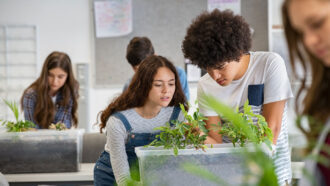 Life
LifeScientists Say: Experiment
An experiment is a set of procedures to learn about the world — and an important part of the scientific process.
-
 Archaeology
ArchaeologyVikings were in North America 1,000 years ago
Wooden objects provide the most precise dating yet for a Viking settlement on the coast of Newfoundland in Canada.
By Bruce Bower -
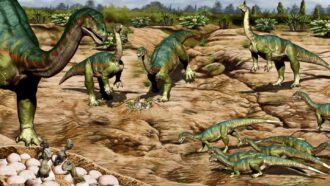 Fossils
FossilsFossils point to earliest dinosaurs that lived in herds
A fossilized family gathering of long-necked Mussaurus from 193 million years ago is the earliest evidence yet of herd behavior in dinos.
-
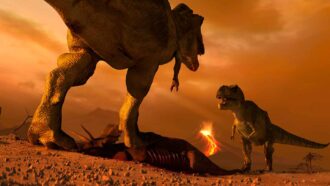 Animals
AnimalsExplainer: The age of dinosaurs
Take a trip back to the Mesozoic Era to explore how geologic events, ecosystems and evolution were connected during the so-called age of dinosaurs.
By Beth Geiger -
 Humans
HumansGenetics show humans likely trace back to Africa
Our history began looking ever more complex once geneticists revealed our ancestors picked up new DNA as they traveled across time and continents.
By Erin Wayman -
 Humans
HumansThe ultimate genealogical search hunts for our earliest ancestors
The complex search to identify humans’ most distant cousins is long, complex and far from straightforward. It’s also far from over.
By Erin Wayman -
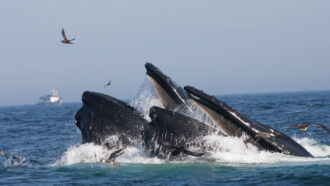 Animals
AnimalsBaleen whales eat — and poop — a lot more than we thought
The amount of food that some whales eat and then poop out suggests these animals have a powerful influence over ocean ecosystems.
-
 Psychology
PsychologyDiscriminatory policing takes a toll on teens and tweens
Black teens and tweens are several times more likely than white youths their age to be harmed by police.
-
 Humans
HumansWant to improve your reading skills? You might just need more space
A simple change by publishers and Web designers could help kids — both with and without dyslexia — read faster and better.
-
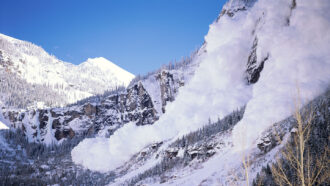 Earth
EarthScientists Say: Avalanche
The word avalanche usually refers to a huge snowslide down a mountain, but it can also be used to describe any large mass of material tumbling downhill.